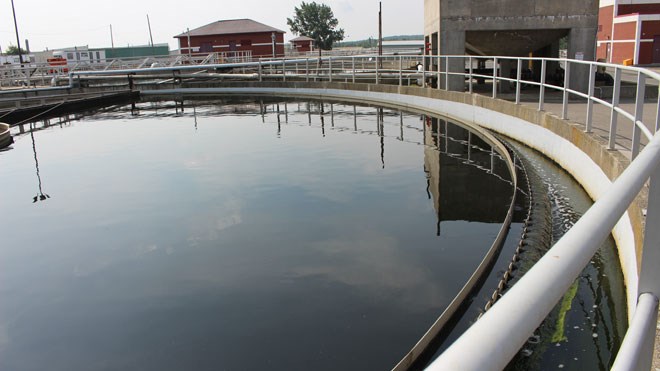Greater Sudbury is investing in a system to monitor odours from the city's new $63-million biosolids plant, currently under construction on Kelly Lake Road.
The city is signing an agreement with Odotech Inc. for the company's “OdoWatch continuous odour monitoring system,” which will continually monitor and analyze smells coming from the plant.
The system will cost $55,000 a year beginning in 2015. Sensors will be installed in four areas – the biosolids facility, the sludge thickening facility, the septage and sludge receiving station, as well as the headhouse.
“Managing the performance of the odour control system to ensure compliance for each of these locations requires the installation of a continuous odour monitoring system,” said a staff report on the proposal. “The system will perform real-time odour monitoring 24 hours a day, seven days a week and will be composed of sensors strategically located near odour emission sources to accurately characterize (identify and quantify) the emissions.”
Construction of the biosolids plant began in 2013, after being in the planning stages for several years. For more than three decades, the city dumped treated sludge into Vale's tailing pond in Lively. But growing odour problems led to more complaints from residents, and a few years ago, Vale told the city it would have to find another solution. The province also passed tougher environmental legislation, forcing the city's hand.
In November 2012, city council approved a public-private sector partnership to build the facility. A private firm – N-Viro, a Canadian company - will build and operate the plant for 20 years, in exchange for an annual operating payment of $2.8 million and an agreement to finance the debt on 75 per cent of construction costs.
Once complete, the biosolids plant will treat about 15,000 tonnes of biosolids a year, creating 30,000 tonnes of a nutrient-rich compound known as N-Rich. Using heat and chemicals, pathogens in the sludge are killed during the treatment process, then nutrients and water are separated, creating the fertilizer N-Viro hopes to sell.
The company is responsible for finding buyers for the organic nutrients it produces, and for hauling it away.
Join Sudbury.com+
- Messages
- Post a Listing
- Your Listings
- Your Profile
- Your Subscriptions
- Your Likes
- Your Business
- Support Local News
- Payment History
Sudbury.com+ members
Already a +member?
Not a +member?
Sign up for a Sudbury.com+ account for instant access to upcoming contests, local offers, auctions and so much more.
